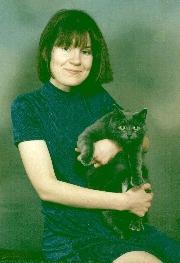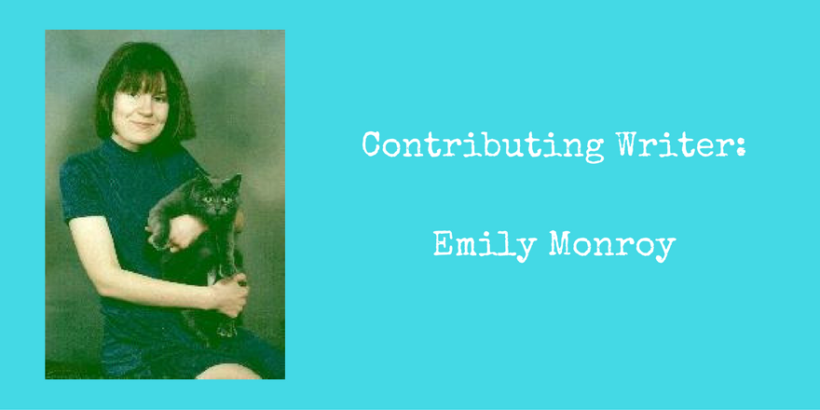Same Sex and Mixed Race
Zeroing in on the debate around gay and interracial marriage

by Emily Monroy
December 2003/January 2004
Originally published in INTERRACIAL VOICE
The province of Ontario, Canada recently made headlines around the world by officially performing same-sex marriages. In a way, this move was merely the continuation of an existing trend in Canadian society. Many companies, for example, extend spousal benefits to homosexual partners of employees, and even some churches hold commitment ceremonies for gay and lesbian couples in their congregations.
The move did not come without criticism, however. Some people asked whether legally recognizing same-sex unions would open the door to things like polygamy and incest. In contrast, others argued that plenty of past marriage laws, such as anti-miscegenation legislation in the United States and South Africa, would seem quaintly outdated today, so it makes no sense to bar gays and lesbians from marrying.
I’m not sure the comparison between same-sex and interracial marriage is completely appropriate. In Canada, miscegenation never became the burning issue that gay marriage has now. That is not to say anti-miscegenism didn’t exist in the country. The province of Saskatchewan, for instance, at one time forbade the employment of White women at Chinese-run stores, lest they be “seduced” by male shop owners. In the early 1900s, a lawyer in Quebec described Jewish men as “corrupters of our [i.e. White Christian] women.” Rather, the fact that non-Whites (and non-Christians) formed a relatively low percentage of Canada’s population meant there were fewer mixed race marriages to grab the public’s attention and create controversy.
Still, having been in a number of interracial relationships myself, in some respects I can empathize with my gay friends. Though I’m celibate now and there’s little chance I’ll marry anyway, I would have highly resented any legislation that prohibited me from tying the knot with a non-White boyfriend. As well, some of the arguments against homosexuality sound eerily like those used to outlaw miscegenation. For example, when the AIDS crisis first emerged some homophobes declared that “God created Adam and Eve, not Adam and Steve.” In a similar vein, anti-miscegenist legislators claimed God (or nature) created the races to be separate (somehow these legislators’ God only meant the White and non-White races to be apart, as at least in South Africa and the United States, marriages between two different minorities were never banned). Miscegenation and homosexuality were both seen as contrary to the natural, or divine, order of things.
Still, my situation (at least in twenty-first century Canada) as a White woman who loves non-White men is not totally analogous to that of a gay or lesbian. Nobody’s ever tried to “bash” me as I walk hand-in-hand with a non-White lover. Preachers don’t rail against my supposedly immoral lifestyle from their pulpits. Finally, if I had decided to make any of my relationships official, practically no judge would have denied me a marriage license.
Which brings me to another point. As I mentioned earlier, some opponents of gay marriage claim it will pave the way to other “deviant” unions like polygamy. My view is that even if polygamy were allowed in Canada, few people other than some Mormons (who make up a miniscule proportion of the Canadian population) and immigrants from countries where it is currently practised would take advantage of such a law. Monogamy – official monogamy at least –has become so entrenched in Western society that it’s difficult to imagine droves of Canadian men seeking to marry more than one woman.
I also don’t think churches that strongly oppose same-sex unions should be forced to perform them or be penalized for not doing so. Here one can make an analogy with abortion. As journalist Cathy Young has written, pro-lifers don’t have the right to enshrine their beliefs into civil law, but they shouldn’t have their tax dollars used for a procedure they find repugnant. By the same token, it’s not the churches’ prerogative to legally prohibit gay marriages.
The same would go for mixed-race marriages. Churches and other non-governmental institutions that consider miscegenation an abomination shouldn’t be obliged to officiate at such unions. On the other hand, a judge, as the representative of a secular state, doesn’t possess this right of refusal. In a free country, it is possible to make interracial (and same-sex) marriage available to people who want it and at the same time not infringe on the rights of those who oppose it.
Emily Monroy is a professional translator and is of Irish, Italian and Norwegian descent. Born in Windsor, Ontario, she now resides in Toronto. Her articles have appeared in several publications, including Interracial Voice, Cats Canada, and Urban Mozaik. She welcomes feedback on her articles. You can contact Emily here

